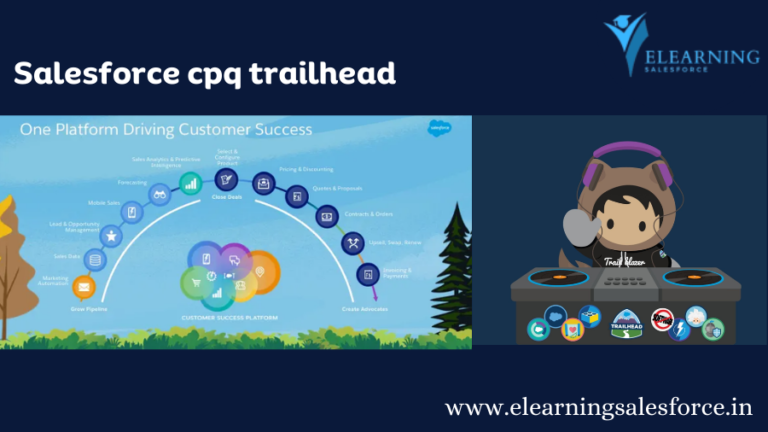Introduction: Salesforce Industry Trends
Salesforce Industry Trends: In the dynamic realm of customer relationship management (CRM), Salesforce stands tall as an industry leader, continuously evolving to meet the changing needs of businesses worldwide. As we navigate the ever-shifting landscape of technology and business, let’s explore some of the key industry trends shaping the trajectory of Salesforce.
Shift Towards Cloud-Based CRM:
The shift towards cloud-based solutions is a dominant trend across industries, and Salesforce has been at the forefront of this revolution. Cloud-based CRM not only ensures flexibility and accessibility but also allows organizations to scale their operations seamlessly. As businesses increasingly prioritize remote work and global collaboration, the cloud-based approach championed by Salesforce becomes a strategic advantage.
Integration of Artificial Intelligence (AI) and Machine Learning (ML):
Salesforce’s Einstein AI has become a game-changer, transforming the CRM landscape. Businesses are harnessing the power of AI and ML to gain predictive insights, automate workflows, and deliver personalized customer experiences. The integration of intelligent automation is not just a trend but a fundamental shift towards data-driven decision-making and enhanced productivity.
Focus on Customer Experience (CX):
Customer experience has become a pivotal differentiator in today’s competitive market. Salesforce’s commitment to elevating customer experience through personalized interactions, streamlined workflows, and responsive interfaces reflects the broader industry trend. The emphasis on creating meaningful customer journeys is reshaping how businesses approach CRM, moving beyond transactional relationships to foster long-term customer loyalty.
Industry-Specific Solutions:
Salesforce is increasingly tailoring its offerings to meet the unique needs of different industries. Solutions like Health Cloud for healthcare, Financial Services Cloud for finance, and Manufacturing Cloud for industrial sectors showcase Salesforce’s commitment to providing industry-specific tools. This trend recognizes that one size does not fit all and reflects the growing demand for specialized CRM solutions.
Rise of Low-Code and No-Code Development:
With a growing emphasis on agility and rapid development, the low-code and no-code movement is gaining traction. Salesforce’s AppExchange and Lightning Platform empower users to build custom applications with minimal coding. This trend democratizes the development process, allowing business users to actively participate in creating solutions that align with their unique requirements.
Data Privacy and Compliance:
As data breaches and privacy concerns continue to make headlines, businesses are prioritizing data security and compliance. Salesforce’s commitment to trust and transparency, including features like Platform Encryption and Compliance Cloud, aligns with the industry trend of safeguarding sensitive information and adhering to global regulations.
Expansion of Ecosystem through Acquisitions:
Salesforce’s growth is not only organic but also fueled by strategic acquisitions. Recent acquisitions like Tableau and Slack signal a broader vision for an integrated, collaborative, and data-driven future. This trend showcases Salesforce’s commitment to staying ahead of the curve and delivering comprehensive solutions that encompass diverse business needs.
Conclusion:
As we navigate the intricate landscape of Salesforce industry trends, one thing is clear – the platform’s evolution is intricately connected to the broader shifts in technology and business strategies. Whether it’s the pervasive influence of AI, the focus on personalized customer experiences, or the growing importance of industry-specific solutions, Salesforce continues to lead the charge. Staying attuned to these trends is not just about adopting the latest features but about positioning businesses to thrive in a world where CRM is more than a tool – it’s a strategic imperative.


